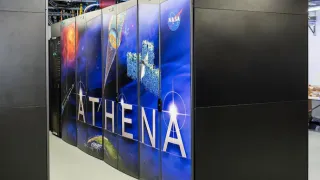Artificial Intelligence (AI) has rapidly evolved from a futuristic concept to a transformative force shaping our everyday lives. From self-driving cars and voice assistants to advanced data analytics and medical innovations, AI is redefining the way humans interact with technology. The journey of AI is not just about machines becoming smarter—it is about the integration of intelligence into systems that impact society, business, and global progress.
As industries adapt to the power of AI, the conversation extends beyond efficiency and innovation. It touches ethics, employment, and the very nature of decision-making in the digital age. The rise of AI represents one of the most significant technological revolutions of the 21st century, making it essential to explore its origins, growth, applications, and challenges.
Early Beginnings of Artificial Intelligence
The foundations of AI were laid in the mid-20th century when scientists began to envision machines that could mimic human intelligence. Alan Turing, often called the father of computer science, introduced the idea of machines that could simulate human thought processes through his famous Turing Test. This concept sparked decades of research into computational models of intelligence.
Early AI development focused on symbolic reasoning and problem-solving. Although computing power was limited at the time, researchers created algorithms that laid the groundwork for future breakthroughs. These experiments fueled optimism about machines that could one day “think” like humans, marking the dawn of a new technological frontier.
The Rise of Machine Learning
While early AI was rule-based, the true breakthrough came with machine learning. Instead of programming machines to follow rigid rules, scientists developed algorithms that allowed systems to learn from data and improve over time. This shift opened new possibilities in pattern recognition, predictions, and automation.
Machine learning powers everyday technologies such as recommendation engines on streaming platforms, spam filters in emails, and credit fraud detection in banking. The ability of AI systems to analyze vast datasets at incredible speed has made it indispensable in sectors ranging from healthcare to finance, highlighting its role as the engine of the AI revolution.
Deep Learning and Neural Networks
The emergence of deep learning, inspired by the structure of the human brain, pushed AI into a new era. Neural networks made it possible for machines to process images, recognize speech, and even outperform humans in complex games like Go and Chess. These advancements elevated AI from a niche academic field to a mainstream powerhouse.
Deep learning has also unlocked advancements in natural language processing, enabling tools like virtual assistants, real-time translation, and generative AI models. These technologies not only improve productivity but also blur the lines between human and machine creativity, giving rise to applications once considered science fiction.
Real-World Applications of AI
AI's rise can be seen in industries across the globe. In healthcare, AI assists in diagnosing diseases, predicting patient outcomes, and accelerating drug discovery. In transportation, autonomous vehicles promise safer and more efficient mobility. Businesses use AI for data-driven decision-making, supply chain optimization, and personalized marketing strategies.
Even in everyday life, AI shapes how we live—through voice assistants, facial recognition, chatbots, and smart devices. Its presence is so deeply embedded in daily routines that most people interact with AI-powered systems without even realizing it. This widespread adoption underscores AI's role as an invisible yet indispensable companion of the modern world.
Challenges and the Future of AI
Despite its rapid rise, AI also brings significant challenges. Ethical concerns such as bias in algorithms, data privacy, and the potential displacement of human jobs have sparked global debates. Governments, businesses, and researchers are working to ensure that AI develops responsibly and benefits society as a whole.
Looking forward, AI will continue to evolve with advancements in general intelligence, robotics, and human-machine collaboration. The future promises even greater integration of AI in every aspect of life, but its growth must be balanced with ethical frameworks, regulations, and human oversight. The rise of AI is not just a technological story—it is a societal transformation that will shape the decades to come.
Also Read: China has developed the world's first 6G chip, internet speed will increase up to 5 thousand times























